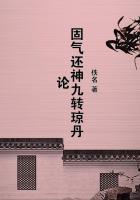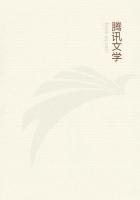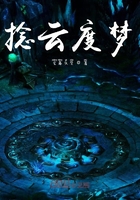"There," he said, "begin at the top of the page.""But I can't," said Michael. "I shall have to spell it out.""That's just what you mustn't do. Go ahead, and don't pause till you get to the bottom of the page. Count; start each bar when it comes to its turn, and play as many notes as you can in it."This was a dismal experience. Michael hitherto had gone on the painstaking and thorough plan of spelling out his notes with laborious care. Now Falbe's inexorable voice counted for him, until it was lost in inextinguishable laughter.
"Go on, go on!" he shouted. "I thought it was Bach, and it is clearly Strauss's Don Quixote."Michael, flushed and determined, with grave, set mouth, ploughed his way through amazing dissonances, and at the end joined Falbe's laughter.
"Oh dear," he said. "Very funny. But don't laugh so at me, Hermann."Falbe dried his eyes.
"And what was it?" he said. "I declare it was the fourth fugue.
An entirely different conception of it! A thoroughly original view! Now, what you've got to do, is to repeat that--not the same murder I mean, but other murders--for a couple of hours a day. . . .
By degrees--you won't believe it--you will find you are not murdering any longer, but only mortally wounding. After six months I dare say you won't even be hurting your victims. All the same, you can begin with less muscular ones."In this way Michael's musical horizons were infinitely extended.
Not only did this system of Falbe's of flying at new music, and going recklessly and regardlessly on, give quickness to his brain and finger, make his wits alert to pick up the new language he was learning, but it gloriously extended his vision and his range of country. He ran joyfully, though with a thousand falls and tumbles, through these new and wonderful vistas; he worshipped at the grave, Gothic sanctuaries of Beethoven, he roamed through the enchanted garden of Chopin, he felt the icy and eternal frosts of Russia, and saw in the northern sky the great auroras spread themselves in spear and sword of fire; he listened to the wisdom of Brahms, and passed through the noble and smiling country of Bach.
All this, so to speak, was holiday travel, and between his journeys he applied himself with the same eager industry to the learning of his art, so that he might reproduce for himself and others true pictures of the scenes through which he scampered. Here Falbe was not so easily moved to laughter; he was as severe with Michael as he was with himself, when it was the question of learning some piece with a view to really playing it. There was no light-hearted hurrying on through blurred runs and false notes, slurred phrases and incomplete chords. Among these pieces which had to be properly learned was the 17th Prelude of Chopin, on hearing which at Baireuth on the tuneless and catarrhed piano Falbe had agreed to take Michael as a pupil. But when it was played again on Falbe's great Steinway, as a professed performance, a very different standard was required.
Falbe stopped him at the end of the first two lines.
"This won't do, Michael," he said. "You played it before for me to see whether you could play. You can. But it won't do to sketch it. Every note has got to be there; Chopin didn't write them by accident. He knew quite well what he was about. Begin again, please."This time Michael got not quite so far, when he was stopped again.
He was playing without notes, and Falbe got up from his chair where he had the book open, and put it on the piano.
"Do you find difficulty in memorising?" he asked.
This was discouraging; Michael believed that he remembered easily;he also believed that he had long known this by heart.
"No; I thought I knew it," he said.
"Try again."
This time Falbe stood by him, and suddenly put his finger down into the middle of Michael's hands, striking a note.
"You left out that F sharp," he said. "Go on. . . . Now you are leaving out that E natural. Try to get it better by Thursday, and remember this, that playing, and all that differentiates playing from strumming, only begins when you can play all the notes that are put down for you to play without fail. You're beginning at the wrong end; you have admirable feeling about that prelude, but you needn't think about feeling till you've got all the notes at your fingers' ends. Then and not till then, you may begin to remember that you want to be a pianist. Now, what's the next thing?"Michael felt somewhat squashed and discouraged. He had thought he had really worked successfully at the thing he knew so well by sight. His heavy eyebrows drew together.
"You told me to harmonise that Christmas carol," he remarked, rather shortly.
Falbe put his hand on his shoulder.















